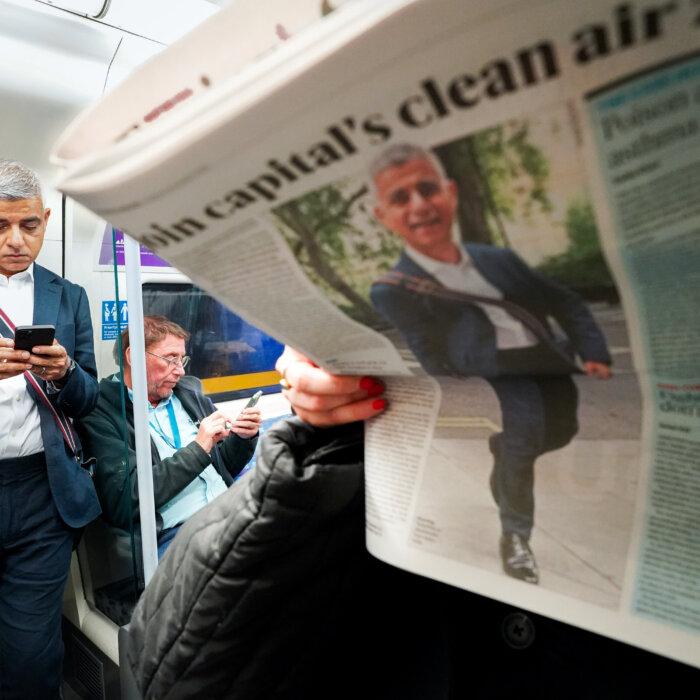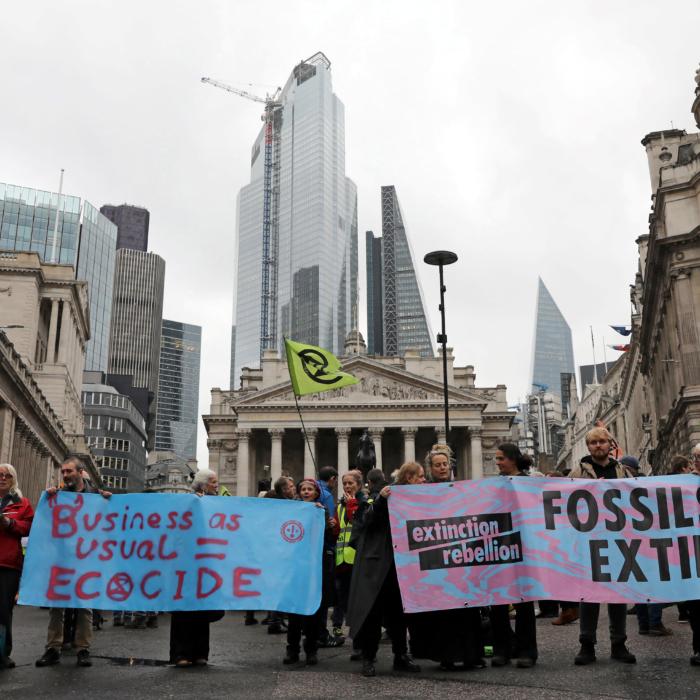Edinburgh Council has voted to ban adverts for fossil fuel-powered cars and cruise holidays on council-owned spaces.
This means a ban on adverts for airlines, airports, cars, cruise ships, and fossil fuel companies in the Scottish capital at council-owned spaces such as billboards and bus stops.
‘Shift in Society’s Perception of Success’
“Reaching this target requires a shift in society’s perception of success, and the advertising industry has a key role to play in promoting low-carbon behaviours,” the council said.It added that the “promotion of high-carbon products is incompatible with net zero objectives.”
It said that the policy is fully aligned with the council’s net zero ambitions for 2030.
Edinburgh has a Low Emission Zone (LEZ) that operates 24 hours a day, charging all non-compliant vehicles for driving through the city. In January, it signed up to a Plant-Based Treaty Action Plan to improve access to plant-based foods among residents.
The city is the latest to adopt “high carbon products” advert bans.
‘No Low Carbon Options’
On airlines and airports, the council said that there are “no low carbon options for commercial air travel available currently or for the foreseeable future, so air travel per se should be treated as high carbon.”Edinburgh Airport is Scotland’s busiest and caters for 14.4 million passengers a year.
Edinburgh Council also claimed that cruise holidays emit more carbon per passenger kilometre than flying, and that they also generate “black carbon” and produce waste which is often discharged into the sea.
“Their engines run 24/7, often even at port which has damaging impacts on air quality,” it added.
SUVs, including electric-powered ones, are included in the ban as are fossil fuel companies regardless of their “potential sustainability.”
A spokesman for Edinburgh Airport told The Epoch Times by email that “there has to be a balance.”
“This is of course a decision for the council, and we will work to support our partners in alternative ways, but it would be a mistake to pretend that Edinburgh doesn’t have Scotland’s busiest airport in its boundary,” he said.
“Tourism is one of our unique selling points as a city—indeed it is something the council itself promotes and relies on as an income generator, so there has to be a balance where we can speak about that positively as we also continue our journey to a more sustainable future,” he added.
Arms manufacturers will also be excluded from advertising and sponsorship partnerships.
Climate Justice
Green Councillor Ben Parker, who spearheaded the Edinburgh policy, said: “We’re pleased the council has taken a lead on the issue of fossil free advertising and sponsorship, and hope to see other councils across Scotland follow suit.“It’s just basic common sense that if the council is serious about climate justice, we cannot allow council advertising space to be used to promote fossil fuel companies.
“We have taken a clear step to say: we don’t need their money, we don’t want their money, and we don’t think it’s right for the council to legitimise the practices of organisations whose business is to profit from war.”
The policy is supported by Adfree Cities, and Robbie Gillett from the campaign group said: “Our daily exposure to adverts encouraging us to buy more and more polluting products runs in contradiction to the urgent need to decarbonise our economy.
Ignore Practical Realities of Our Energy Needs
UKIP is currently campaigning in the general election “over unattainable and destructive climate goals.”UKIP leader Lois Perry told The Epoch Times by email, “Edinburgh’s decision to ban advertisements for airlines, cars, cruise lines, and fossil fuel companies is a ludicrous step in the wrong direction, driven by the flawed ideology of net zero.”
She said that this “overreaching measure will cripple the city’s economy, limit consumer choice, and undermine industries that provide essential services and jobs.”
“Net zero policies, like this one, ignore the practical realities of our energy needs and the significant contributions of these industries to our nation’s prosperity,” said Ms. Perry.
Edinburgh Council leader Cammy Day told The Epoch Times by email on Friday: “We fully support well-managed advertising and sponsorship arrangements, so I welcome this revision of our policy in line with our net zero ambitions. The new policy won’t impact existing contracts and will only apply to new contracts at the point of re-tender.”







